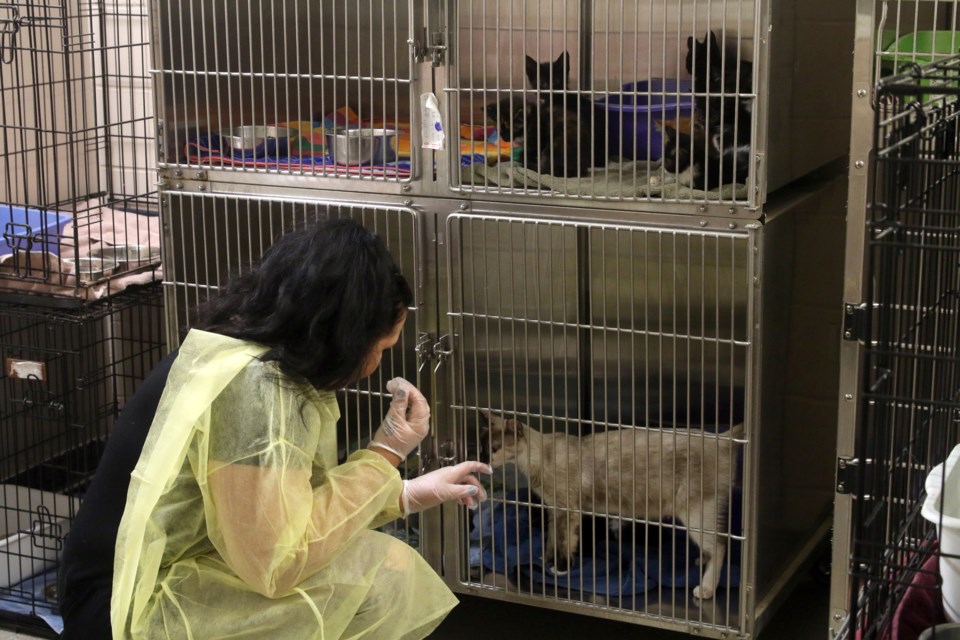THUNDER BAY - The health of the cats seized from a local apartment complex continues to improve, but Humane Society staff say situations like this are becoming more common and demonstrates the importance of accessible spay and neuter programs.
On July 5, agents with the Ontario Society for the Prevention of Cruelty to Animals seized 41 cats from a Cumming Street apartment complex. The animals were seized after a warrant was executed by OSPCA agents, which was obtained following Thunder Bay Fire Rescue being called to the scene after complaints about the smell.
The cats were transferred to the Thunder Bay District Humane Society where they were assessed by a veterinarian. Some cats show signs of a respiratory infection, some with eyes that need to be cleaned constantly and some of the kittens show signs of birth defects.
“Some are a lot sicker than others,” Cassandra Nordal, executive director of the Humane Society, said on Monday. “It ranges anywhere from mild to severe when it comes to a respiratory infection. Now we have all of the severe cases in our maternity ward and we have the other ones in isolation room two.”
Of the 41 cats, 14 are doing very well. Those will undergo vaccination and will be spayed and neutered in the coming days. Once that is complete, a mandatory waiting period of 10 to 14 days will follow before they are moved into the main cat room for public viewing.
According to witnesses in the Cumming Street area, several cats already belonging to people were found in the apartment. But Nordal said it can be very difficult to positively link a cat to its owner.
“There are a few that look very similar but it’s very tough because we can’t really tell unless they are microchipped that this is their cat or not,” Nordal said. “So something we want to express to our community right now, microchipping your pet, making sure your pet is spayed or neutered, stuff like that is really going to be beneficial in cases like this. It helps us link an animal right back to you.”
Two of the cats had been microchipped and matched to an owner, Nordal said.
In order to make room for the 41 cats seized, cats already at the Humane Society were transported to Timmins, Ont. However, Nordal said large scale seizures of animals are becoming much more common, and she believes prevention is a matter of providing affordable and accessible spay and neuter clinics.
“We are moving forward with the spay and neuter clinic,” she said. “That is something I have become very passionate about. I have seen the Longlac cases, the Kenora cases. We are making headway on that. No timeline has been set as of yet, but we are moving, so we are excited.”
According to Nordal, getting a pet spayed or neutered can cost a minimum of $400 in the city of Thunder Bay, which can be a barrier for some people.
“Unfortunately, it comes down to money, and that is why we trying to bring in a low cost spay/neuter clinic to make it affordable for our community and our First Nations communities,” she said. “We want to make a difference and we need to, otherwise I don’t know what is going to happen. We definitely have a problem here.”
